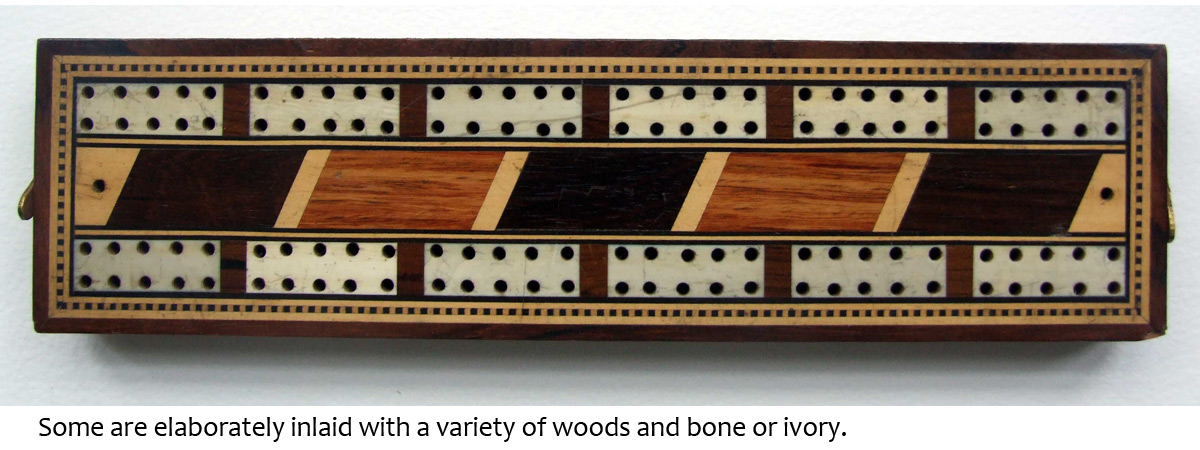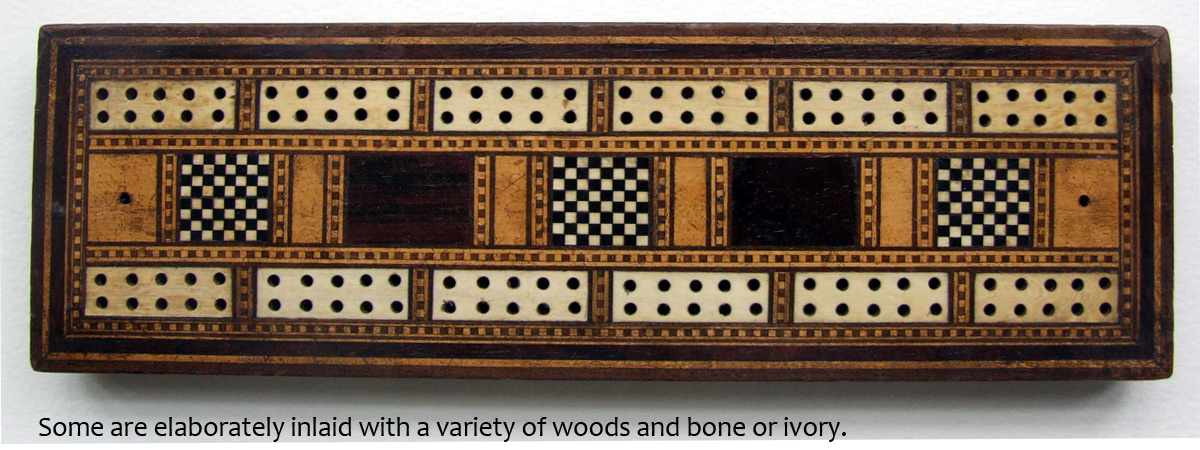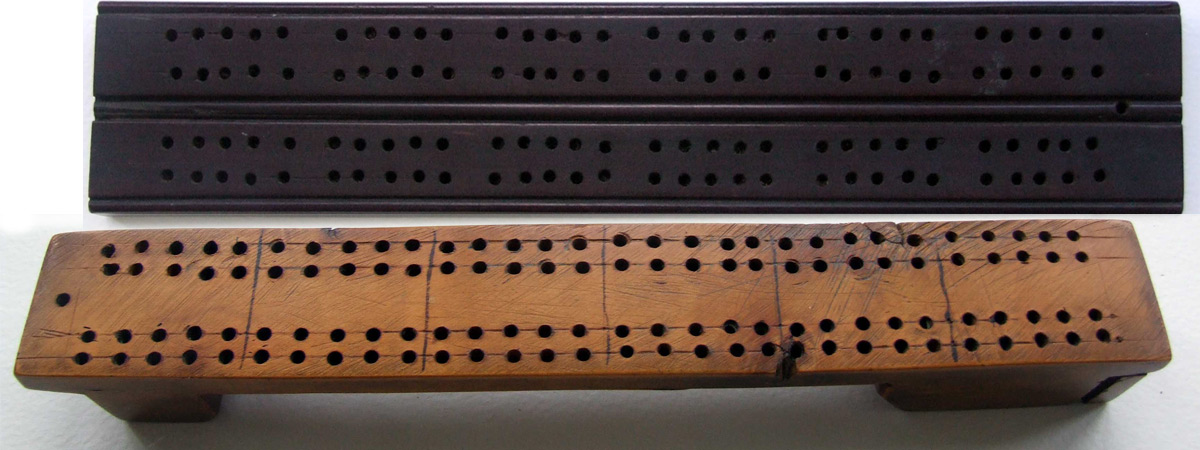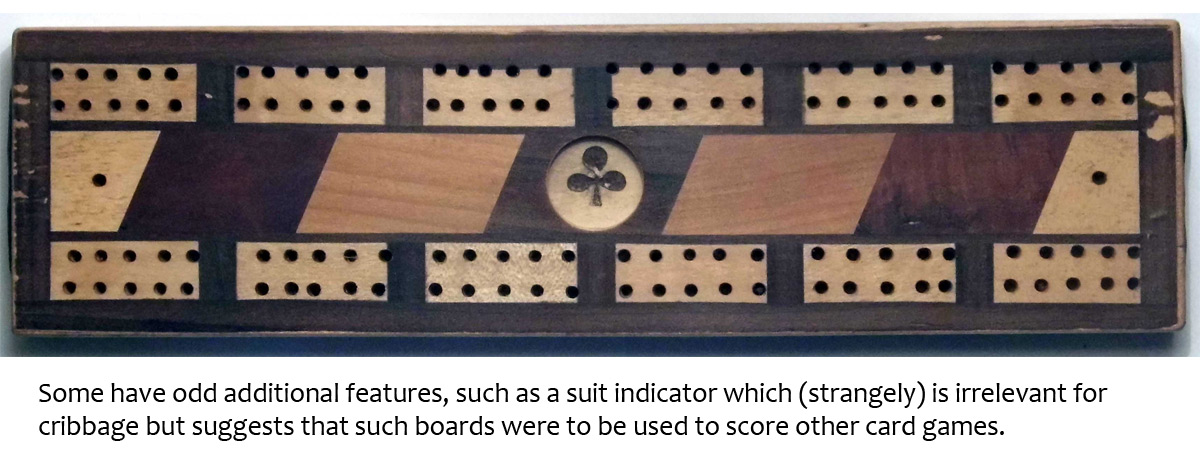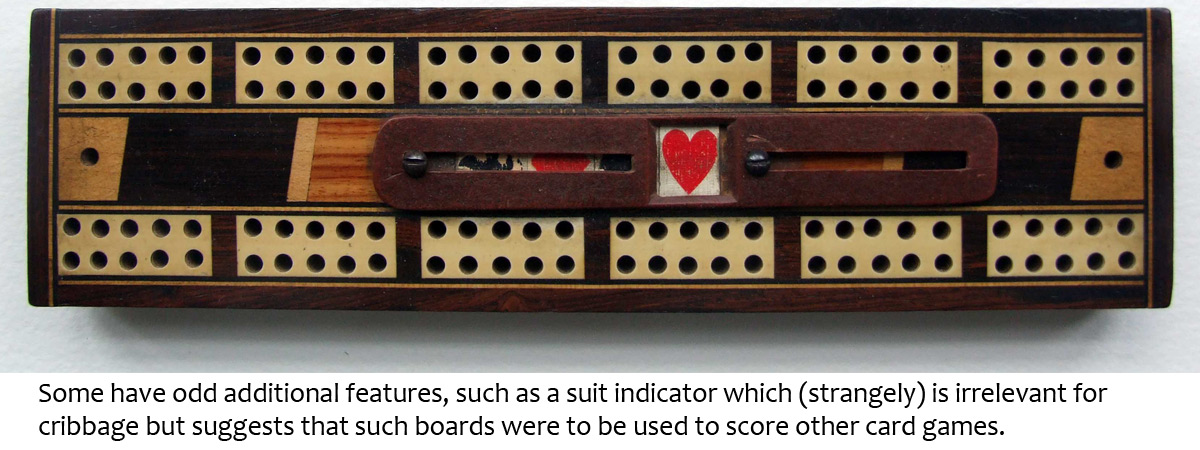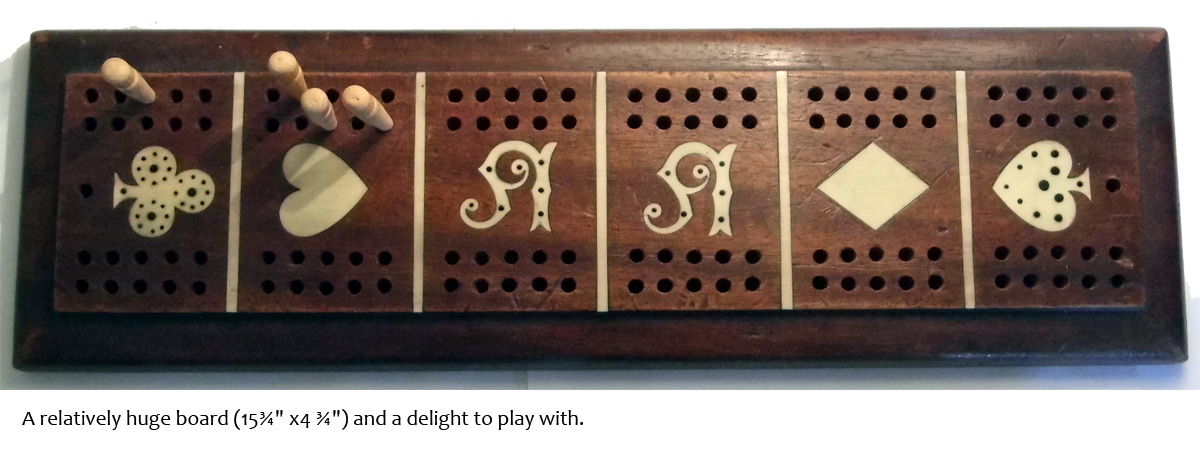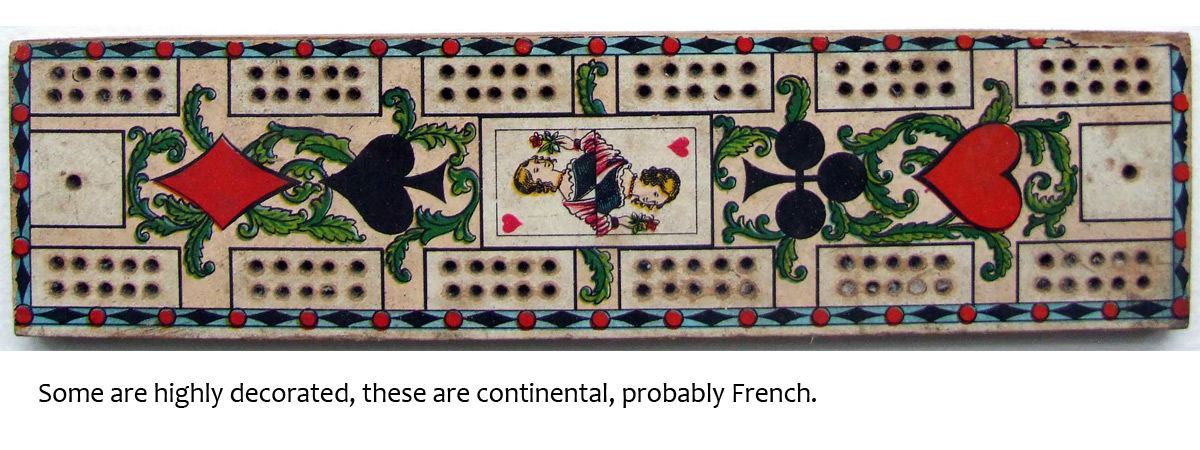Cribbage Board Collection part 3
A collection of antique and vintage Cribbage Boards by Tony Hall, part 3
Cribbage Board Collection - part 3
by Tony Hall
The two-player flat board is the most traditional design. The original boards provided for two double rows of 30 holes, broken into six groups of five for easy calculation. The game was first played with five cards per player, each surrendering two “unwanted” cards to the dealer’s box. The first player to gain 61 points was the winner i.e. once round the board and into one of the central holes. In later years the game was (and is now) more frequently played with six cards per hand, and to 121 points i.e. twice round the board. This particular, unremarkable board was owned by my grandfather (Arthur Stanley Rundle); it was the board on which I learned to play in the early 1950s and is therefore very special to me.
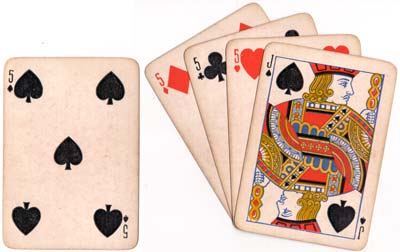
Above: the best hand possible in Cribbage – scoring the maximum of 29 - four cards in hand and the fifth turned-up card in the same suit as the Jack. Thus the hand scores 16 points in 15s, 12 points for having all four 5s... and “one for his nob”!
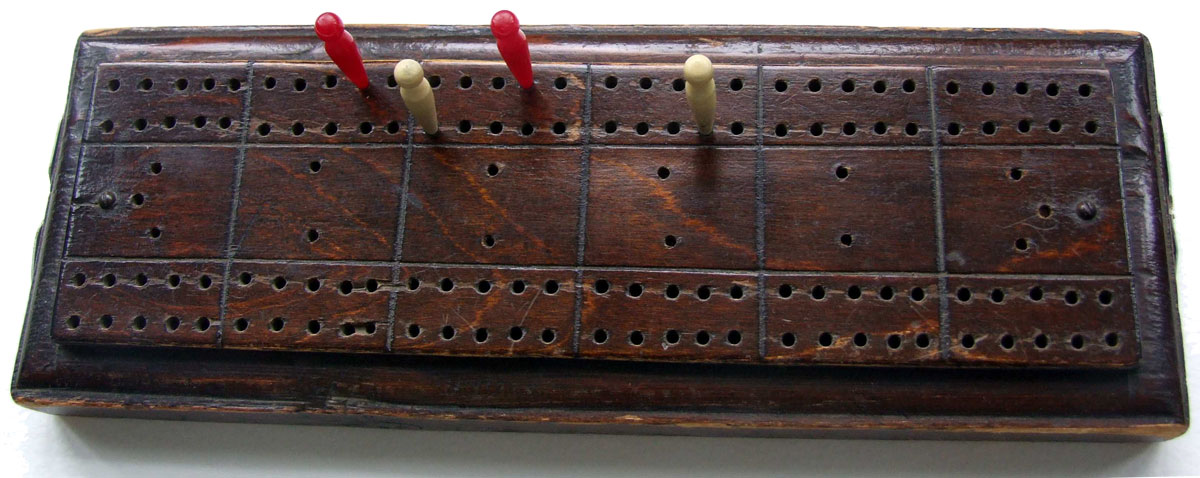
Above: two-player flat board. From the collection of Tony Hall.
A “shed-work” board offers a further variation in design which I have never seen elsewhere. This was made in an era (1930s, 40s and 50s) when men and women made things at home rather than bought expensive versions. Not to be too sexist about it, but women had sewing machines and made clothes and domestic fabric items; men had sheds and made things out of wood and metal. Many such men would be earning their living using the same skills, so the quality of some of the so-called “shed work” can be difficult to identify as such.
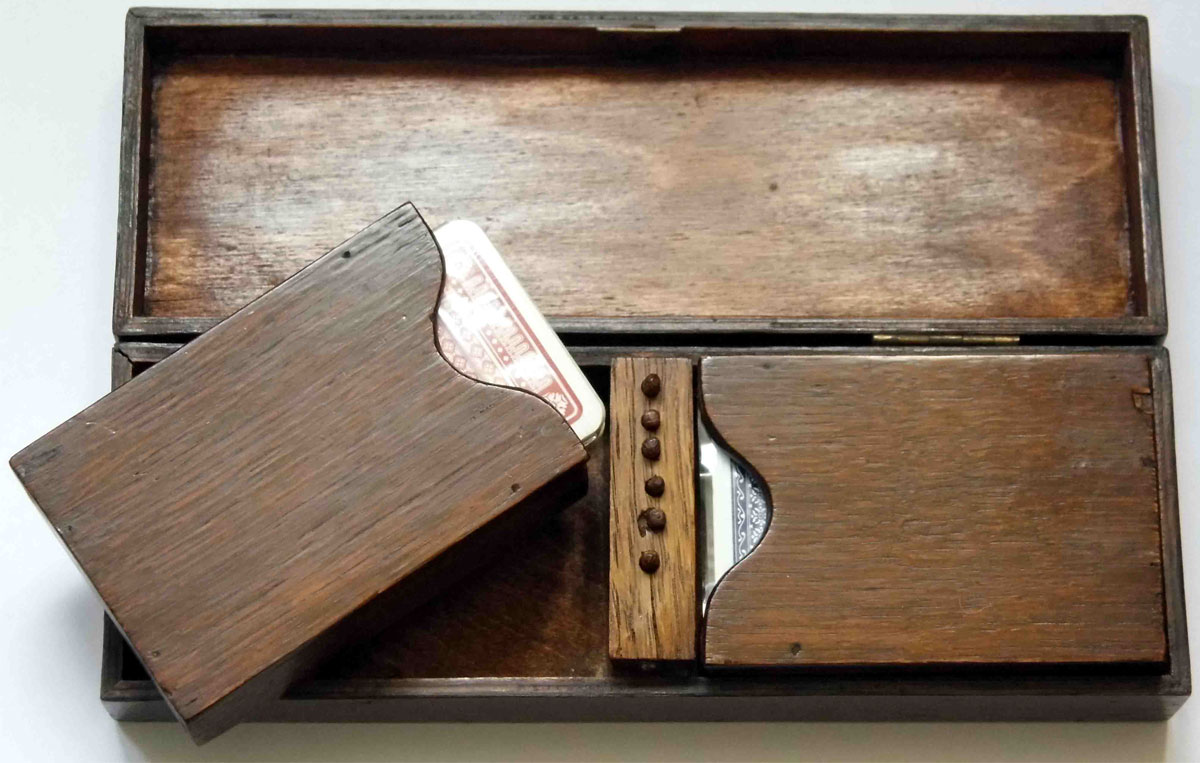
Above: home-made “shed-work” cribbage set. This one has more obviously seen the inside of a shed! From the collection of Tony Hall.
Each of my double board collection caters for only two players, whereas triangular boards are obviously designed for three players.
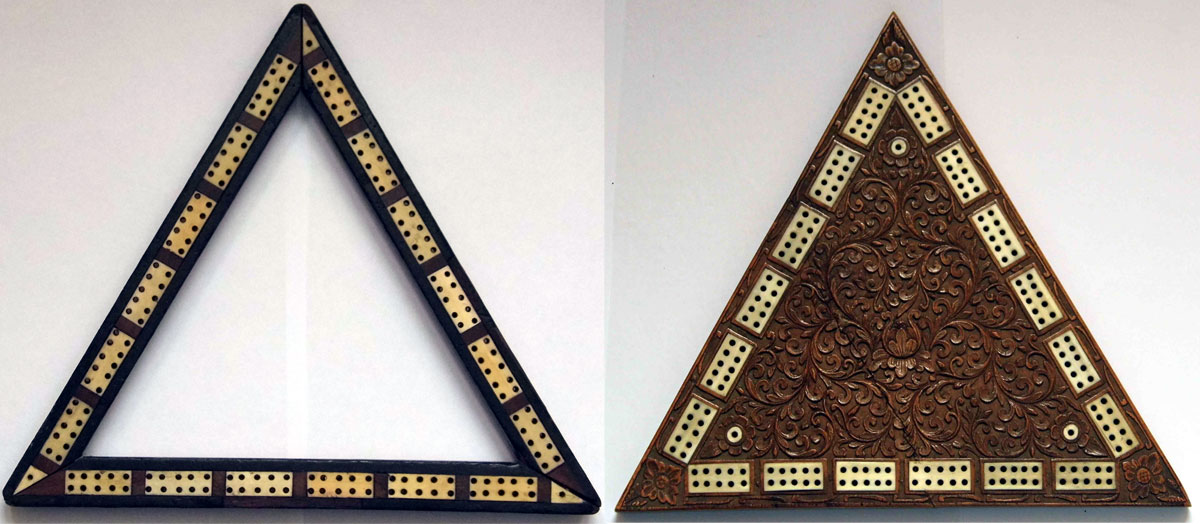
Above: this is the oldest, probably late Victorian; others are more recent. The solid one (right) is smaller but highly decorated and almost certainly comes from India. From the collection of Tony Hall.
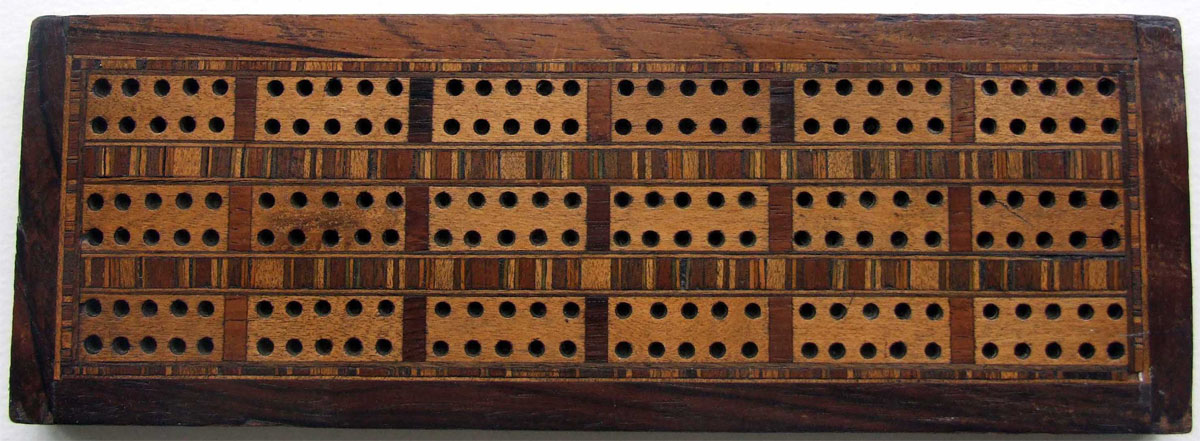
Above: I have one flat board designed for three players, but they are unusual. From the collection of Tony Hall.
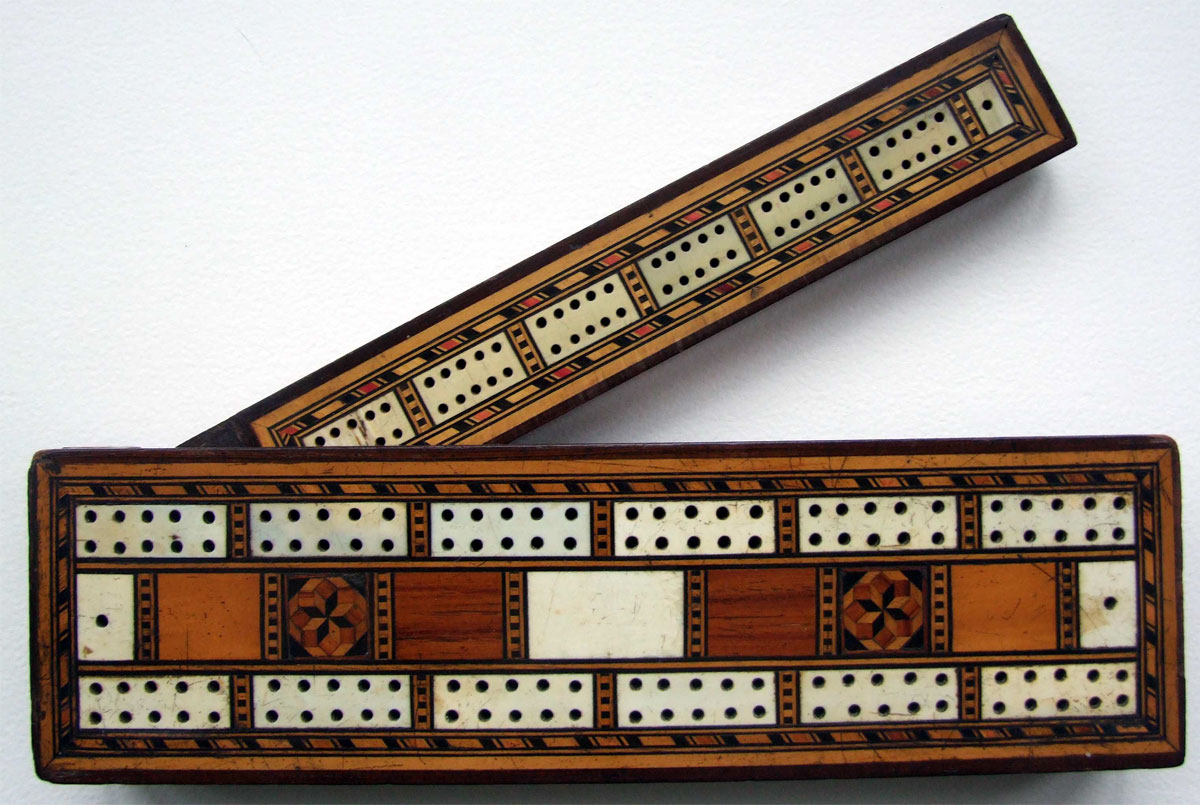
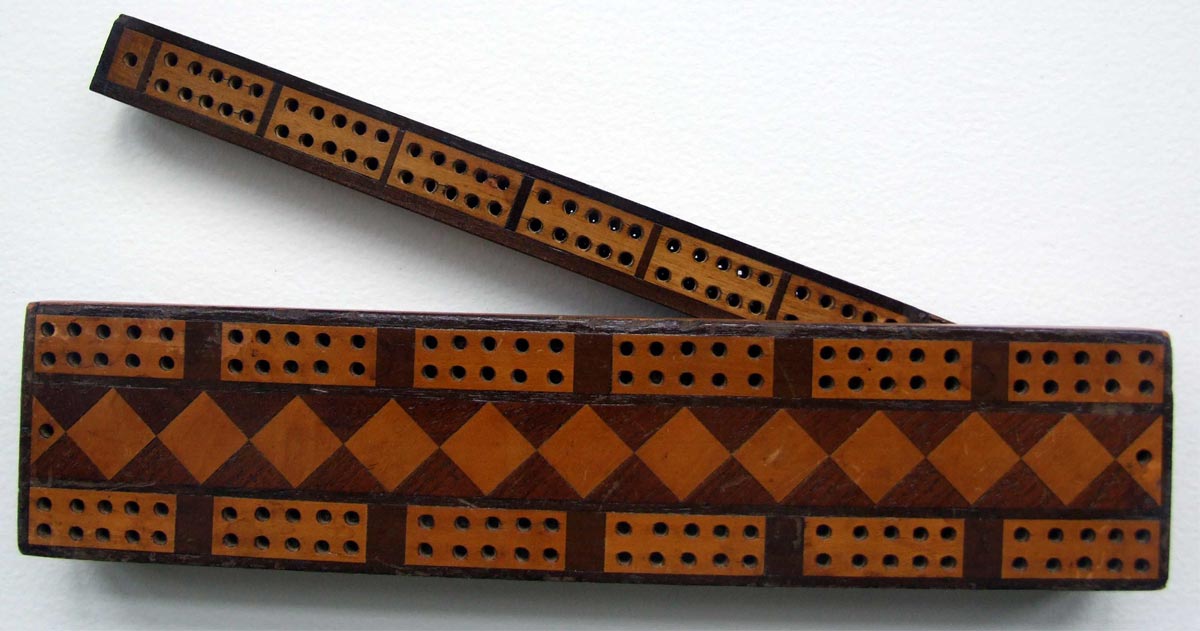
Above: a significant variant of the flat wooden board is the flat board with a third track on a pivot for the three player game. From the collection of Tony Hall.

Above: a “shed-worker” probably produced this to accommodate a second friend! From the collection of Tony Hall.

Above: a beautiful and tactile example of the cabinet-maker’s skill being applied to a cribbage board. From the collection of Tony Hall.

By Tony Hall
United Kingdom • Member since January 30, 2015
I started my interest in card games about 70 years ago, playing cribbage with my grandfather. Collecting card game materials started 50 years or so later, when time permitted. One cribbage board was a memory; two became the start of a collection currently exceeding 150!
Once interest in the social history of card games was sparked, I bought a wooden whist marker from the 1880s which was ingenious in design and unbelievably tactile. One lead to two and there was no stopping.
What happened thereafter is reflected in my articles and downloads on this site, for which I will be eternally grateful.

Related Articles

Solo Whist
A distinctive British trick-taking game that emerged in the mid-19th century.

Waddington’s faux books
Waddington’s faux book set containing four packs of playing cards and bridge markers.
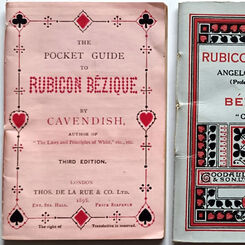
New interest in old games
Games once fashionable are now eclipsed by quicker gratifications.

The Origin of Patience Games in English
Jessel’s Bibliography of works in English on Playing Cards and Gaming describes “The first book on P...

The Club Series by G. Bell & Sons
George Bell & Sons produced ‘The Club Series’ of books each specialising in one or more of the popul...
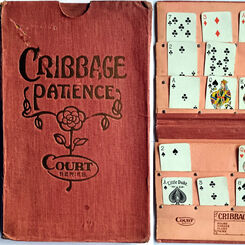
Cribbage Patience or Cribbage Squares
Cribbage Patience or Cribbage Squares, produced by Messrs Edward Mortimer, Halifax and London.

Hoyle and his Legacy
Edmond Hoyle (1672-1769) was an English writer who made his name by writing on whist and a selection...

A New Look at the Evolution of Whist Markers and Gaming Counters
This article aims to illustrate the evolution of whist and gaming counters from the 18th century to ...

Whist writers and their pseudonyms
Why did so many early writers about whist and other card games feel the need to write under a pseudo...

Whist marker boxes
The Camden Whist marker was being advertised by Goodall and son in 1872 as a new product.

Pinochle
I have always been intrigued by the game Pinochle.
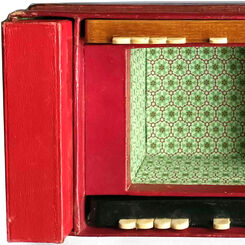
Mystery Objects
I need help in identifying the purpose of this particular piece of card-playing kit.
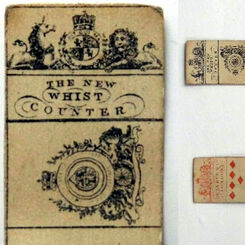
Why do we Collect? My 20 Favourite Items
I suppose people collect for different reasons, rarity, quality, ingenuity of design, sentimental va...
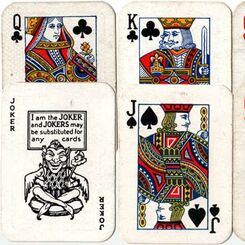
Wills Scheme page 2
W.D & H.O.Wills Playing Card scheme page 2
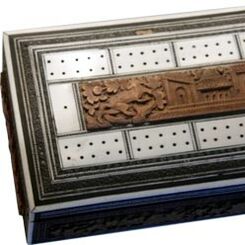
Cribbage Board Collection
A collection of antique and vintage Cribbage Boards by Tony Hall
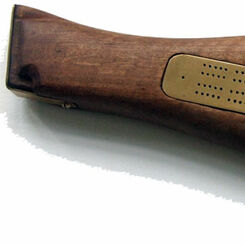
Cribbage Board Collection part 6
A collection of antique and vintage Cribbage Boards by Tony Hall, part 6
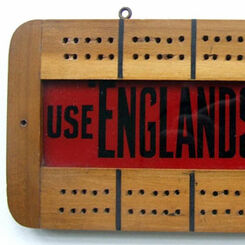
Cribbage Board Collection part 5
A collection of antique and vintage Cribbage Boards by Tony Hall, part 5: Advertising
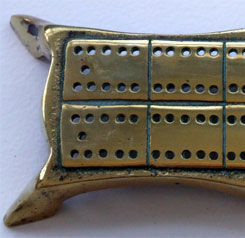
Cribbage Board Collection part 4
A collection of antique and vintage Cribbage Boards by Tony Hall, part 4.
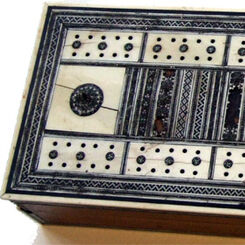
Cribbage Board Collection part 2
A collection of antique and vintage Cribbage Boards by Tony Hall, part 2
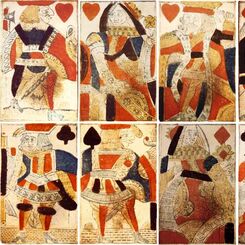
Hunt, c.1800
Standard English pattern playing cards manufactured by Hunt, c.1800.
Most Popular
Our top articles from the past 60 days


